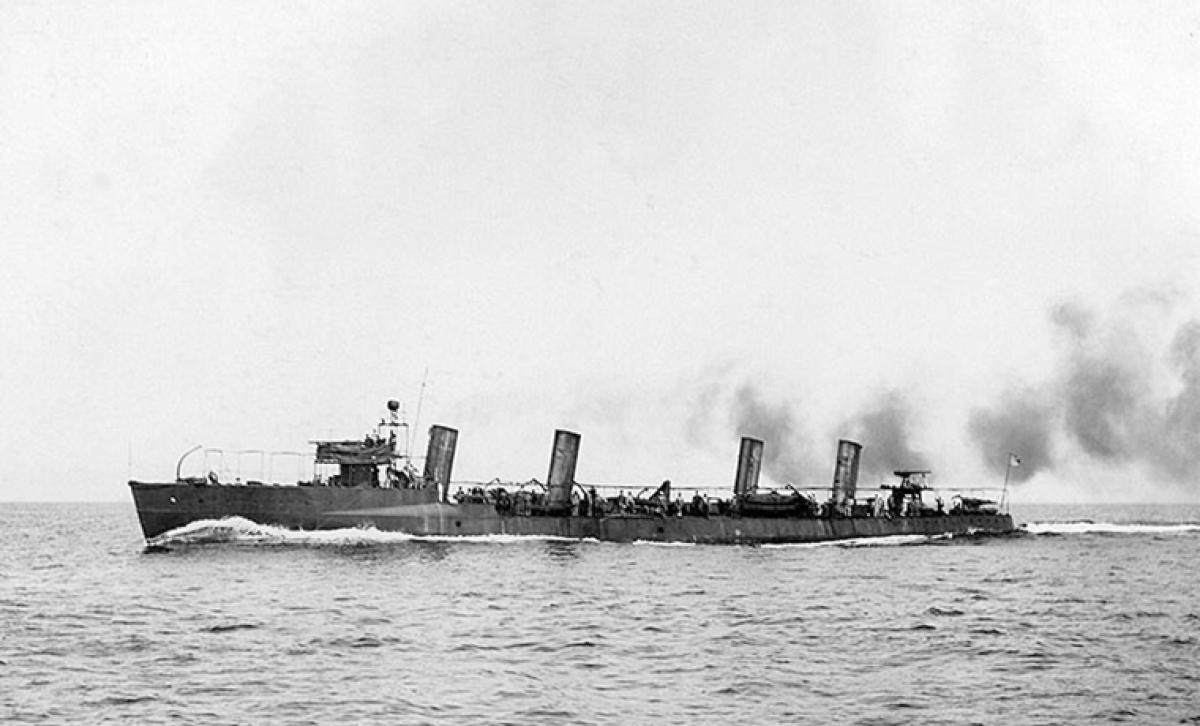The proverbial stars seemed to be aligned for the young officer. After his graduation from the U.S. Naval Academy in 1905, he was posted to a brand-new battleship in the Asiatic Fleet, a plum assignment at the time. His early performance was so impressive that, as an ensign, he was given command of the newly commissioned gunboat USS Panay and simultaneous command of a small naval station in the Philippines, prompting him to describe his good fortune as having “one foot ashore and one at sea.”
Things continued to go well for the young ensign. When war briefly threatened with Japan in mid-1907, he was given command of the destroyer USS Decatur (DD-5). He overcame significant challenges in getting the ship ready for war in a timely manner and later successfully transported visiting Secretary of War William Howard Taft from Olongapo to Manila. It seemed apparent that the faith his superiors had placed in him was well-founded.
But then, on 7 July 1908, while entering Batangas Harbor, south of Manila Bay—an area known for unreliable charts—the young man was uncharacteristically careless. He estimated his position rather than taking bearings. When his leadsman suddenly reported that the ship was not moving, this promising young officer realized his stars had fallen from the sky. He had committed one of the potentially deadly sins of command—running his ship aground, in this case, on a mud bank.
Attempts to free the ship by working her engines were fruitless and, although very much aware of his dilemma, he remembered his grandfather’s wise advice: “Don’t worry about things over which you have no control.” Escaping from that black night by going to sleep, he waited to see what the following day would bring.
Morning brought a change in fortune when a passing steamer gave a line and successfully pulled the Decatur out of the mud. The ship was saved and unscathed, but her commander was not. Following regulations, he dutifully reported the grounding and was soon relieved of his command.
It is worthy of reflection that this ship was operating in a remote part of the world, where communications were meager at best and scrutiny by higher command was all but nonexistent. With the support of a loyal crew, the young commanding officer might have been tempted to cover up the incident and, absent some other misfortune, might well have succeeded. But those same qualities that had prompted his superiors to invest their trust in him prevailed, and he chose not to compound his error but instead to face the consequences that his momentary carelessness had earned him.
A court-martial ensued, charging him with “culpable inefficiency in the performance of duty.” He was found guilty, and his promising career might well have ended then and there. But the court wisely chose to take into account the ensign’s previously flawless and impressive record and sentenced him only “to be publicly reprimanded by the Commander-in-Chief, U.S. Naval Forces in Philippine Waters.” The relatively light sentence was further abridged by permitting “the promulgation of these findings and sentence [to] be regarded as constituting in itself a public reprimand.”
Thankfully, the ensign’s career did not end there. Chester W. Nimitz would become one of the Navy’s greatest admirals. When he retired from active service four decades after the Decatur grounding, he did so with five stars on his collar.
*William Shakespeare, Julius Caesar



